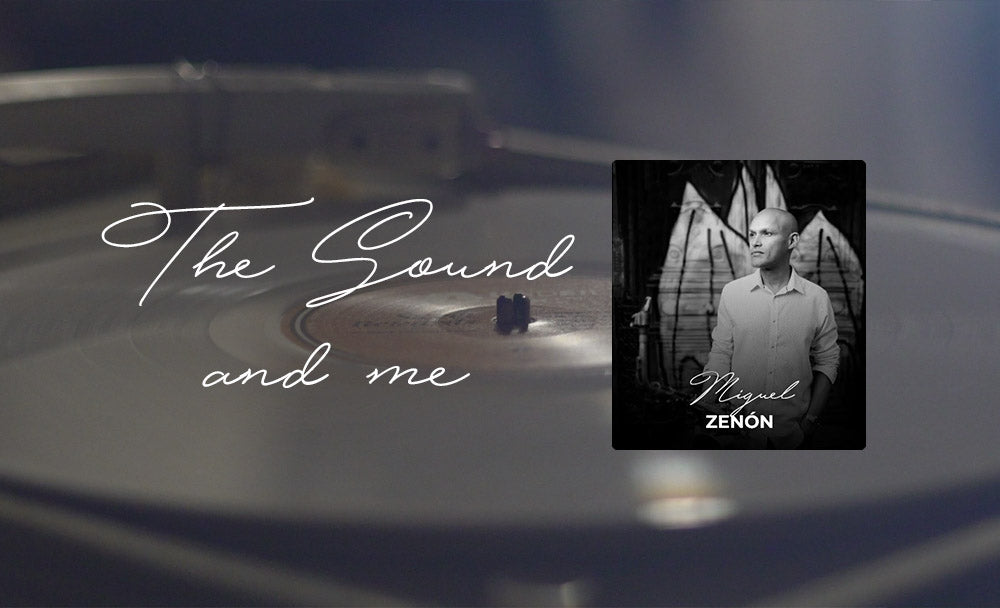The Sound and me #16 with Miguel Zenón

Number one priority
I have sort of a pretty particular way of thinking about sound, which has developed over time. I didn't really think about it this way at the beginning of the stages of my development, but it has definitely become my number one priority, I would say, over the last couple of decades. Early on in my early 20s, when I went to school and when I was sort of developing, I spent a lot of time on the instrument, working on technique. And I started playing jazz, working on that aspect and creativity and language and many different things. And it wasn't until I finished going to College that I started thinking seriously about what it meant to be able to produce a quality sound and what it took to be able to do so. And ever since then, it has pretty much been my number one thing that I work on.
The way we use our bodies
There's two different parts. So there's the physical aspect of the sound, which means the way we use our bodies to produce the sound. In the case of the saxophone, there's very specific parts of our body or diaphragm or oral cavity, et cetera, and we need to learn how to use those things. It's not like we use our diaphragm or oral cavity in everyday activities. They're very specifically used in combination in this case, in my case, I guess, to play the saxophone. So I need to be able to recognize certain things, how certain things feel, how my body react to certain situations, to be able to produce a quality sound. And it took me a while to figure this out, but nowadays a lot of what I practice is basically keeping myself fit, keeping myself in shape so that I can respond to the instrument. And the instrument is not sort of like holding me back, in a way.
The kind of personality I want
The other part of the sound, the other side of it is, of course, personality. Personality is anything that has to do with timber, articulation, nuance, attack, vibrato, all those little things that sort of make a sound have a personality.
So I really feel that there's two things. They sort of need to go hand in hand, but you can't really have the personality if the physical aspect of the sound is not taken care of. So I could be thinking about the way I want my sound to be produced and the kind of personality I want, but if I'm not able to control the basic elements of how to produce that sound physically, it's going to be really hard for me to achieve that personality. So when I usually talk about this, I make a point on saying: make sure the physical part of it is taken care of. And then the personality thing is just going to come naturally by listening and kind of infusing the sound with your influences and the stuff that you like.
You feel better, you play better
We all go through periods of hero worship and emulating the people that we like and that's part of what influences our sound. But there's no way two people can sound the same even if they play the same instrument, the same mouthpiece. It's really like we all have a very specific kind of thing that we can produce and what we're really trying to do is tailor that product and make it as good as we can make it.
And having said that, I really believe that it has a lot more to do with comfort than with sound specifically. I think you can find a great saxophonist like Charlie Parker or Cannonball or Sony Rollins or so many others who have amazing sounds and have them play different horns and you might notice little nuances, but the sound is going to be the same because the sound is really them, and the reason why they decided to play one horn or another is just to feel more comfortable and if you feel better, you play better. That's kind of how it is. So in my case, I just really try to find things in terms of setup that make me feel comfortable, that make me feel that I can produce my personality and be who I am, you know, and that's going to make me feel better and hopefully play better and sound better.
Something that is only yours
I think a lot of times it's sort of taken for granted the power that you can achieve as an interpreter and as a performer by getting to a point where you can develop something that's only yours and someone can recognize that's yours. When we hear John Coltrane play one note or miles Davis play one note, there's a very specific power to that and it's something that myself and all musicians should strive for. I feel that's sort of like the ultimate achievement that we can shoot for in terms of sound production. Being able to produce something that has quality but also that can be sort of like immediately identifiable as something that is yours and no one else's. It could be informed by many things, it could be informed by other players or your experiences or the music you listen to or whatever is going on in your life. But ultimately, having your own sound and having something that you can produce and people can recognize should be the ultimate achievement.
► Learn more about Miguel Zenon
► See all the episodes on our Facebook page